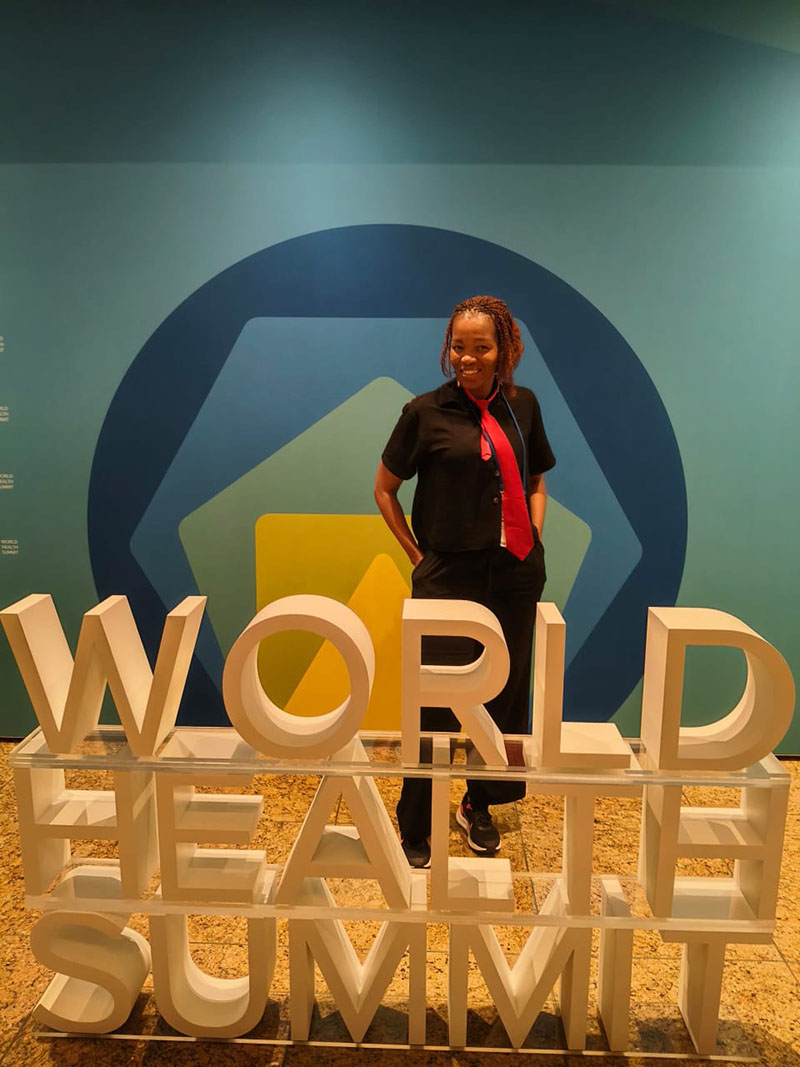In a rapidly warming world, Africa has much to teach about harnessing indigenous knowledge systems (IKS) for global health resilience and trauma risk reduction.
Diane Thelma Molokwa, a doctoral candidate at the IKS Centre on the North-West University’s (NWU’s) Mahikeng Campus, demonstrated this when she participated at the 7th International Young Researchers' Symposium on Global Health held in Berlin, Germany.
The symposium, hosted by Akkon University Institute for Research in International Assistance, took place on 11 and 12 October 2025 and was followed by the World Health Summit from 12 to 14 October.
Diane was part of a South African research delegation that included Dr Mayashree Chinsamy and Prof Hassan Kaya from the African Institute in IKS at the University of KwaZulu-Natal. They presented two research posters on IKS and global health resilience.
The first poster examined the integration of IKS into contemporary disaster management for trauma risk reduction, management and resilience. It showed how cultural and ecological knowledge specific to African communities can enhance disaster trauma management through youth-led digital innovation, and also highlighted the role of gender intersectionality and frontier technologies in strengthening inclusive disaster resilience strategies.
The second presentation was on the global relevance of African traditional mental healthcare systems in disaster risk reduction, management and resilience. This poster focused on the role of young researchers using digital tools to revitalise indigenous mental healthcare systems.
The research aligns with global frameworks addressing climate justice, environmental health and mental well-being.
“The symposium created a space for knowledge exchange and collaboration on how IK can contribute to sustainable and inclusive health systems,” says Diane. “It also affirmed the importance of integrating indigenous perspectives in addressing global health challenges.”
She adds that participation in the symposium and the World Health Summit strengthened opportunities for future partnerships between African research institutions and international networks.

Diane Thelma Molokwa at the World Health Summit
